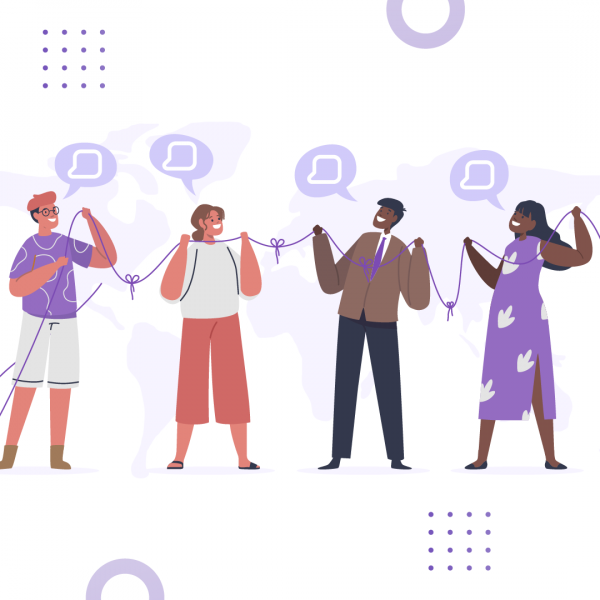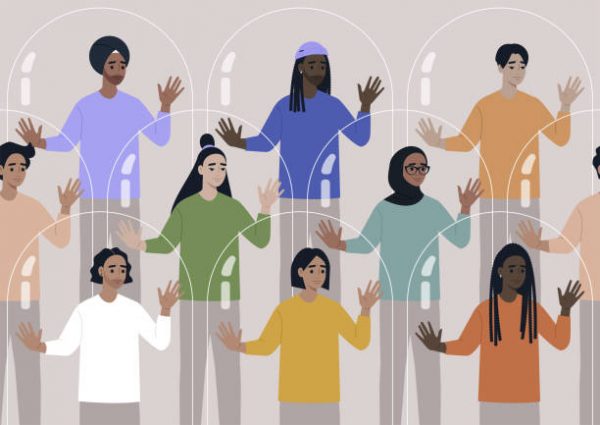
Diversity, Inclusion, and Equity (DEI) has evolved from a buzzword in the corporate lexicon to a critical economic catalyst and competitive differentiator. DEI initiatives are not just about fulfilling moral and ethical obligations.
These measures are also about increasing employee engagement, improving productivity, and attracting and retaining top talent. After all, it is when both employees and customers are happy that a business succeeds.
In this article, we’ll examine the business case for DEI and provide examples of companies that have successfully implemented DEI programs.
| Key Takeaways |
|---|
|
The Fundamentals of Diversity, Equity, and Inclusion
Businesses today increasingly rely on DEI to form the core of their success. But what do these terms really mean, and how do they help build resilient, ethical, and successful businesses?
- Diversity means acknowledging, understanding, and valuing our differences, such as race, ethnicity, and gender, celebrating individual uniqueness in the workplace.
- Equity emphasizes fair and impartial organizational procedures, ensuring each employee can fully utilize their skills and talents by eliminating barriers.
- Inclusion cultivates a culture where everyone feels valued and respected, with equal access to opportunities and resources, appreciating and utilizing contributions from diverse perspectives.
DEI is critical to businesses for several reasons. Firstly, it is the right thing to do from a moral standpoint. Everyone deserves dignity and respect, and businesses are responsible for ensuring employees feel safe and supported.
Legally, DEI is also critical. Discrimination and harassment can lead to costly lawsuits and damage a company’s reputation.
But there are financial reasons to prioritize DEI as well. Research has consistently shown that diverse teams are more innovative and make more informed decisions. They can better understand and address the needs of a diverse customer base, leading to increased customer loyalty and revenue.
Companies prioritizing DEI also have a competitive advantage in attracting and retaining top talent.
The Business Case for DEI
The implementation of diversity, equity, and inclusion (DEI) in a corporate setting is about more than hiring from underrepresented groups or merely voicing a commitment to diversity. It requires tangible initiatives and a conducive environment.
The benefits of such actions are twofold:
1. DEI Drives Profitability
Beyond enhancing a company’s reputation, DEI offers substantial financial benefits.
Businesses with high levels of racial and ethnic diversity tend to outperform their industry’s median financial returns by up to 35%. Diverse teams contribute to increased profitability, shareholder returns, and customer satisfaction.
Diverse workforces also tend to outshine competitors in profitability, shareholder returns, and customer satisfaction, supporting the case for enhanced revenue generation.
Some other key ways DEI increases profitability include:
- Improved Customer Satisfaction/Retention: As more consumers want to do business with companies that reflect their own values and experiences, diverse teams can bring a broader perspective to the table, resulting in innovative products that appeal to a wider market.
- Reduced Turnover: High turnover impacts business negatively, from loss of institutional knowledge to a damaged reputation. An inclusive environment helps retain employees who feel valued and respected.
- Improved Product: Thanks to increased innovation and improved decision making from diverse perspectives, businesses can offer better, more tailored products or services.
- Enhanced Reputation: Companies committed to DEI are perceived as ethical and responsible, increasing brand awareness and customer loyalty. The International Labor Organization found that businesses with. This, combined with DEI initiatives, helps attract more customers and employees.
2. DEI Helps Build Happier Teams
In addition to driving financial success, DEI also cultivates a healthier and more productive work environment. Let’s face it—happy teams lead to increased productivity, better business results, and a more stable workforce.
Here’s how:
- Improved Employee Engagement: An inclusive work culture fosters a sense of belonging, which significantly increases employee engagement. Employees are more likely to feel valued and respected, leading to increased job satisfaction and higher productivity.
- Increased Creativity: When individuals feel valued and included, they are more likely to share their unique perspectives and ideas, leading to increased creativity and innovation.
- Greater Cohesion: DEI promotes understanding and collaboration among team members from different backgrounds, enhancing teamwork and cohesion.
While there is a strong business case for using DEI to drive success, it’s important to remember that being seen as an inclusive company starts with being an inclusive leader. This means living your values, not just talking about them, and leading by example.
Real-World Examples of Successful DEI Initiatives
Now that we’ve discussed the business benefits of DEI, let’s explore some real-world examples of successful DEI initiatives. These initiatives have enabled companies to attract and retain top talent, improve employee morale, and increase revenue.
GitLab
The GitLab team is distributed across 68 countries around the world. GitLab is committed to developing a transparent work environment where everyone’s voice is heard.
Each day, they strive to create an environment where people can be themselves and contribute to their full potential.
GitLab serves more than 100,000 organizations globally, and the company wants to have a team that reflects its diverse user base.
Thus, GitLabs embodies this philosophy through recruiting initiatives, inclusive language and benefits, training, and a Diversity, Inclusion, and Belonging Advisory Group.
They can innovate, make better decisions, and improve their financial performance by fostering diversity and inclusion.
Mastercard
As one of the Top 10 Best Companies for Diversity on DiversityInc’s list, Mastercard is firmly committed to fostering a diverse workplace.
In 2021, women earned $1.00 for every $1.00 made by men, and people of color earned the same amount. A majority of final candidate interviews involved women, and they established nine Business Resource Groups (BRGs) to represent diverse communities and their allies.
As well as providing practical employee benefits, MasterCard also offers assistance with surrogacy and sex reassignment surgery. The company also invests in diversity initiatives, including Girls4Tech, a STEM curriculum for girls aged 8-12.
The Future of DEI in Business
DEI will increasingly shape the future of business as more companies recognize the need for diversity, equity, and inclusion in the workplace.
One emerging trend is intersectionality, which considers multiple identities and experiences. This means that companies are not only looking at race and gender but also at factors such as sexual orientation, disability, and socioeconomic background.
Another trend is the use of technology to support DEI initiatives. For example, companies are using AI-powered tools to remove bias from the hiring process and analyze employee data to identify areas for improvement.
A solution like Namecoach can help businesses make a positive impression. Employees who are the first contact with customers can pronounce names correctly, significantly impacting how customers perceive a company.
Namecoach provides an innovative platform for addressing name mispronunciation and gender pronoun miscommunication in various settings, including the workplace. Namecoach will improve customer service, build stronger client relationships, and increase revenue. Ready to get started? Schedule a demo today!









